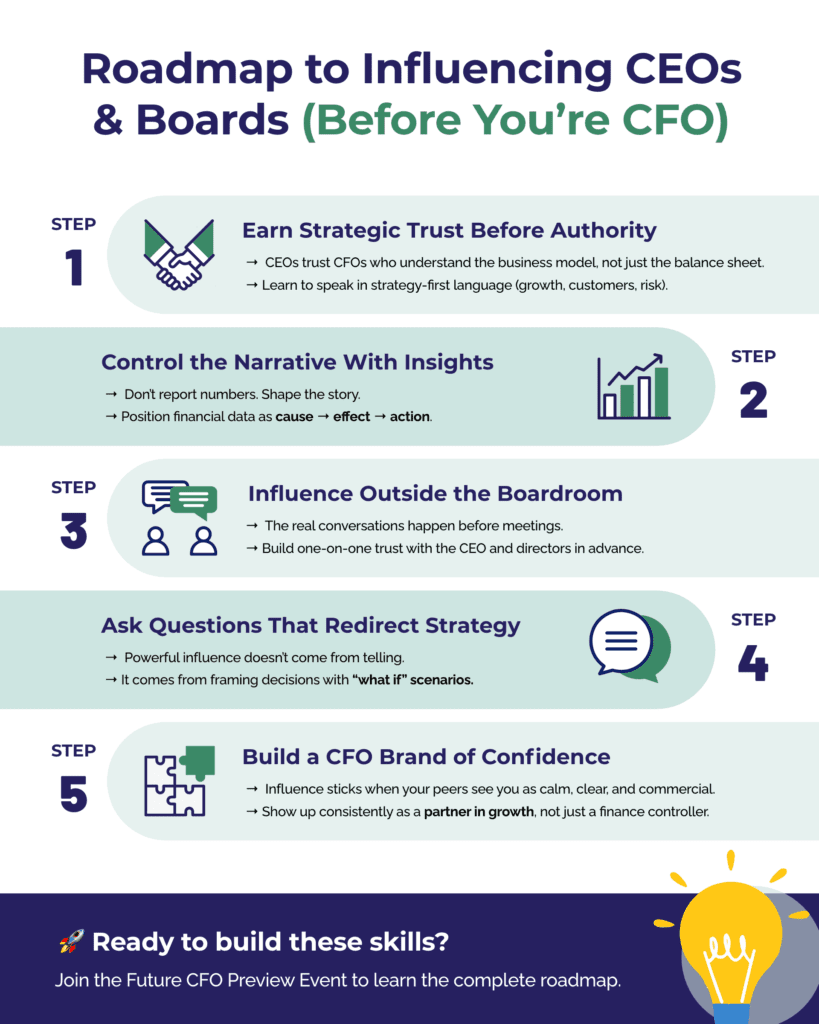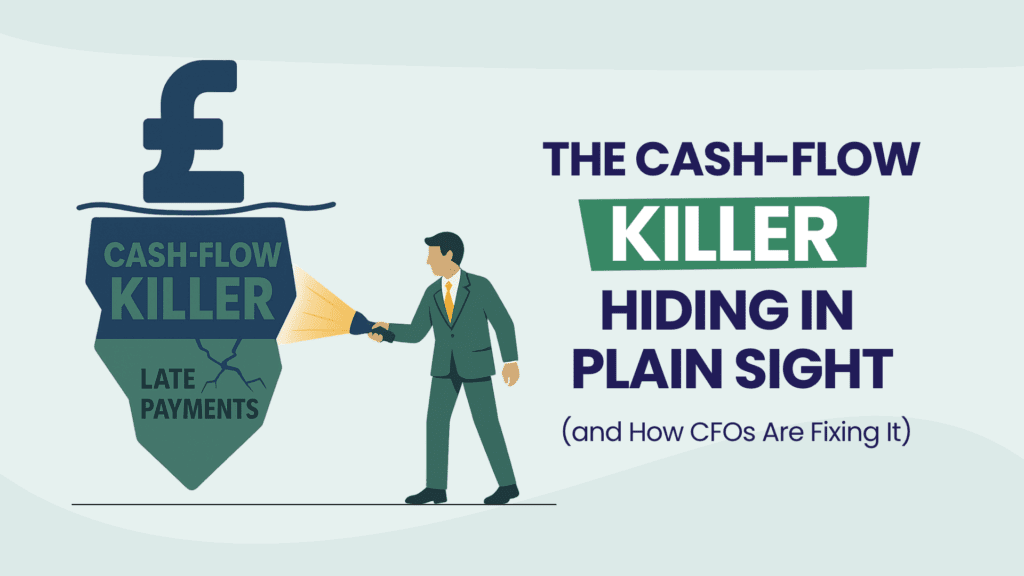How CFOs Influence Without Overstepping

Last week, a finance leader asked me:
“How can I actually influence the CEO… without stepping on their toes?”
It’s a more common question than you think.
CFOs often sit on the edge of the boardroom:
- Close enough to see the decisions.
- But not always invited to shape them.
You know the numbers. You see the risks.
But speaking up can feel like overstepping.
👉 These are the skills that separate finance managers from future CFOs.
And they’re the very skills we teach inside the Future CFO Program.
If you’d like to see how the program works — and whether it’s right for you — join us at the Future CFO Preview Event on 8th October.
Reserve your free seat here
Why this matters
CEOs don’t just want someone to “report the numbers.”
They want a co-pilot who can:
- Simplify complexity.
- Bring confidence to uncertain decisions.
- Ask the tough questions no one else will.
- Show how the numbers link to strategy.
👉 Influence doesn’t come from authority. It comes from trust.
At the Future CFO Program, we show you how to build that trust authentically — without arrogance, without hype, and without sacrificing credibility.
Find out more at the Preview Event on 8th October
What CEOs and boards actually want from a CFO
From dozens of boardroom interviews, four qualities always rise to the top:
✅ Clarity – Turn complexity into simple, actionable insights.
✅ Confidence – Show up as a partner, not just a reporter.
✅ Courage – Ask the questions others are afraid to ask.
✅ Context – Link the numbers to strategy, not just the spreadsheet.
These are the exact qualities we help finance leaders develop in the Future CFO Program.
The 3-Step Method for Building Influence
Here’s a simple framework you can start applying today:
1. Translate, don’t report
Boards don’t need raw data. They need meaning.
Instead of, “Revenue is down 3%,” say:
“If this trend continues, our runway shortens by six months — unless we reallocate spend now.”
2. Lead with questions, not answers
Instead of, “We need to cut costs,” try:
“What would happen if we continued this spend versus reallocating it?”
Questions spark discussion and position you as strategic, not combative.
3. Build influence outside the boardroom
The real work is done before the meeting.
Influence happens in one-on-one conversations with the CEO and directors.
By building trust in advance, your voice carries more weight when it matters most.

👉 We go deeper into this framework — and much more — inside the Future CFO Program.
Join the Preview Event on 8th October to see how it works.
Reserve your free seat here
Why most finance leaders get this wrong
The trap many fall into is believing that:
❌ More detail = more credibility
❌ Silence = safety
❌ Authority = influence
But detail overwhelms, silence sidelines, and authority without trust doesn’t persuade.
✔️Influence is built through confidence + consistency.
The more you position yourself as a thought partner, the more CEOs and boards come to rely on you.
The bottom line
Influence doesn’t mean overstepping.
It means building the trust, confidence, and presence that makes your voice essential.
👉 Join us on 8th October at the Future CFO Preview Event.
It’s free, it’s live, and it’s your chance to see how the Future CFO Program works — the program designed to help you step up with influence and authority.📅 Spots are limited — Reserve your free seat here.





Responses